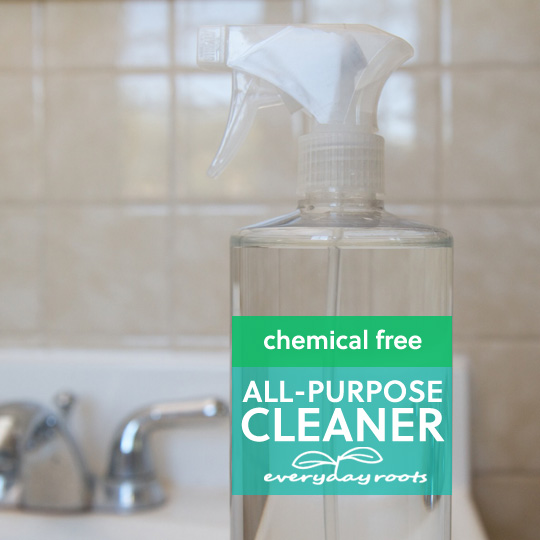How To Become More Self-Sufficient Without Starting a Full-Blown Farm…
Want to start preserving your harvest, making your own soap, or building a backyard root cellar — but not sure where to begin? “Homesteading Advice” gives you instant lifetime access to 35+ practical homesteading books on food preservation, veggie gardening, DIY natural cleaning products (save over $250 per year with this skill alone), brewing, off-grid energy, and a whole lot more…
Click Here To Check It Out Now!
For a long time I had my go to all-purpose store bought cleaning solution that I grabbed for every little cleaning task imaginable. I wiped down my counters with it, cleaned the bookshelves, the walls, and had it handy for any little sticky grimy spot that popped up.
When I finally came to my senses about the chemicals I was spraying around my home, I knew I needed my own solution (one that wouldn’t make me hold my breath when I sprayed it!)
Does this cleaner kill 99.99% of bacteria or germs? No. And I am very much ok with that. I don’t think eliminating that stuff entirely does us any favors. It does, however, do just fine cleaning what I need it to clean without going overboard, and contains the commonest components in home-made cleaning products…

Why white vinegar: White vinegar cuts through grease and grime, dissolves mineral deposits, helps lift stains, and breaks down odors. While it does smell when wet, I find it the smell goes away when it dries. I also just don’t mind the smell of vinegar.

Why essential oils: Some essential oils, like tea-tree or eucalyptus, have anti-microbial properties, which means they help inhibit the growth of disease causing microorganisms. They also add a nice scent.

Why baking soda: A powerful deodorizer and stain remover with anti-bacterial properties (that aren’t over the top) baking soda is, like white vinegar, a staple in household cleaning.

You will need…
-1/4-1/2 cup of white vinegar
-2 tablespoons of baking soda
-Several drops of tea tree or eucalyptus essential oil
-Spray bottle
-Enough water to fill the bottle
Directions
Pour ¼ to a ½ cup white vinegar in a spray bottle and add 2 tablespoons of baking soda. Put in a few drops of your chosen essential oil and then fill the bottle to the top with water.

Give it a good shake and let it settle before using. Test for color-fastness if you are using it on fabrics.

We got by for a long, long, time without hardcore cleaners, and I personally don’t think they are good or necessary. I think a home should be clean, but I don’t think it should be sterile. Otherwise we’re just ending up short term spraying nasty chemicals into our environment, and long-term weakening out immune systems and creating resistant strains of bacteria. Not to mention making your own cleaner is cheaper, easy, and incredibly satisfying.
P.S. Take a look at the Everyday Roots Book. It’s a Book that we created to help you replace the toxic products and medications in your home with healthier, all-natural alternatives. It contains 215+ effective home remedies and covers everything you will need to protect your family and save money every month.
By Claire Goodall – Claire is a lover of life, the natural world, and wild blueberries. On the weekend you can find her fiddling in the garden, playing with her dogs, and enjoying the great outdoors with her horse. Claire is very open-minded, ask her anything – Meet Claire?


